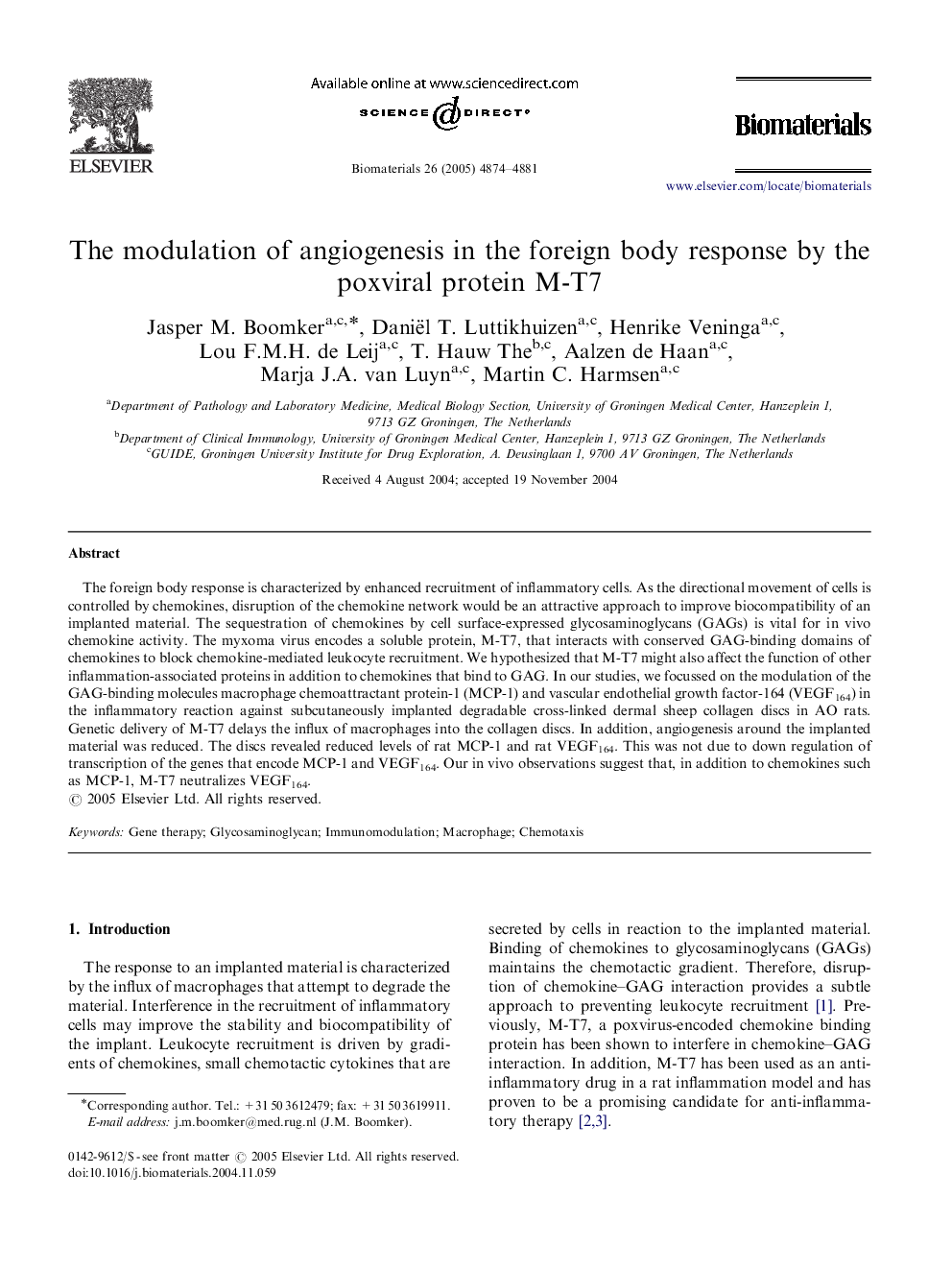| کد مقاله | کد نشریه | سال انتشار | مقاله انگلیسی | نسخه تمام متن |
|---|---|---|---|---|
| 11962 | 769 | 2005 | 8 صفحه PDF | دانلود رایگان |

The foreign body response is characterized by enhanced recruitment of inflammatory cells. As the directional movement of cells is controlled by chemokines, disruption of the chemokine network would be an attractive approach to improve biocompatibility of an implanted material. The sequestration of chemokines by cell surface-expressed glycosaminoglycans (GAGs) is vital for in vivo chemokine activity. The myxoma virus encodes a soluble protein, M-T7, that interacts with conserved GAG-binding domains of chemokines to block chemokine-mediated leukocyte recruitment. We hypothesized that M-T7 might also affect the function of other inflammation-associated proteins in addition to chemokines that bind to GAG. In our studies, we focussed on the modulation of the GAG-binding molecules macrophage chemoattractant protein-1 (MCP-1) and vascular endothelial growth factor-164 (VEGF164) in the inflammatory reaction against subcutaneously implanted degradable cross-linked dermal sheep collagen discs in AO rats. Genetic delivery of M-T7 delays the influx of macrophages into the collagen discs. In addition, angiogenesis around the implanted material was reduced. The discs revealed reduced levels of rat MCP-1 and rat VEGF164. This was not due to down regulation of transcription of the genes that encode MCP-1 and VEGF164. Our in vivo observations suggest that, in addition to chemokines such as MCP-1, M-T7 neutralizes VEGF164.
Journal: Biomaterials - Volume 26, Issue 23, August 2005, Pages 4874–4881